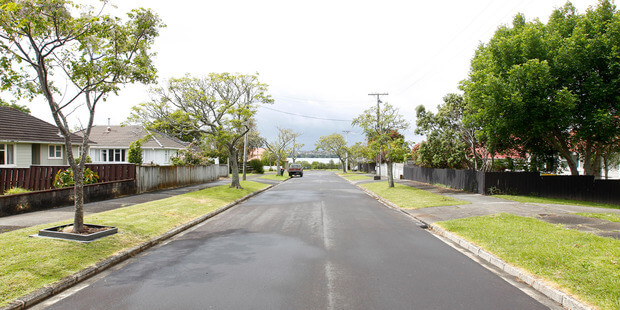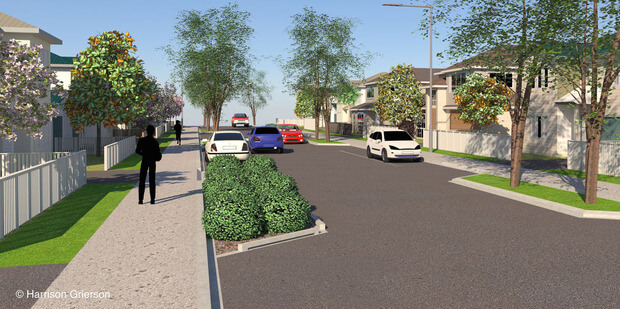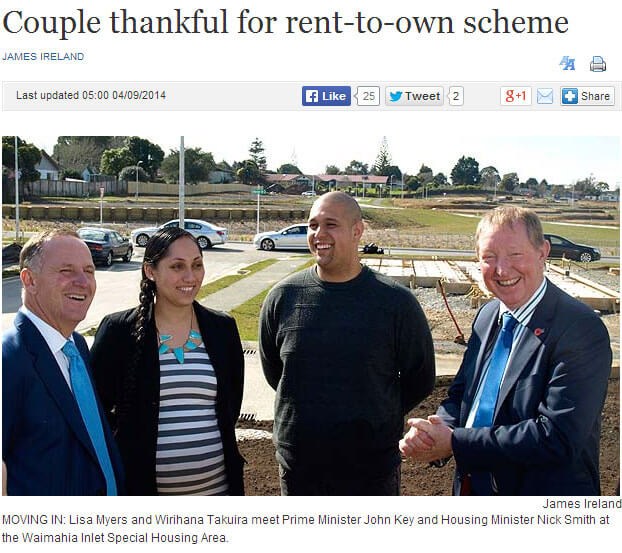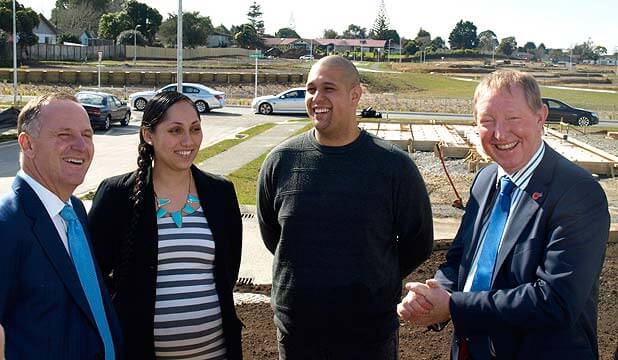Waimahia is certainly getting exposure in light of the housing affordability crisis and the upcoming election. I thought the clip was good and reiterate our support for the hand up, not hand out philosophy underpinning what is being done. It is nice for us to see the results of what we do appreciated by first home owners excited about where they are headed with their home as we leave the scene early and don’t get to see this part of the process which makes it all worthwhile. We congratulate them on their new home and hope that they will be very happy at Waimahia.
However the thing I wanted to comment on specifically about this clip was around a comment attributed to Labour to the effect that because houses have not yet been completed the project is a massive failure. While I fully appreciate Labour’s political need to take an opposing position to national the comment once again highlights a complete lack of understanding of the development process from the wider public which I hear frequently in relation to the Special Housing areas.
The simple fact of the matter is that the design, consenting and construction process takes 12 to 18 months best case with zoned land. If you add a rezoning process to the mix you will add a further 6 months to the process and the simple reality is that you have not yet seen the impact of the HASHA legislation. Waimahia lead the charge being the first consent through the door within months of the Housing Office being established by Council (they had only 3 staff at our first meeting) and you will start to see the benefits of this legislation over the next 1-2 years in my opinion. It is much needed legislation and it would be a tragedy not to see it through or even extend. Yes there are issues with unlocking land and providing more housing but the legislation forces these issues to be confronted and while the answers aren’t always obvious at least they get tabled and debated.
Developments follow a very linear process and involve millions of dollars and you can only accelerate things to a certain point. In the same way that night follows day you can’t adjust physical reality to suit political or other agendas as much as you would like to do so. At Waimahia in the height of last summer it would have been hard to get more equipment or people on site in a small area and construction was hitting $800,000 to $1m per month to deliver to timeframes and no one has yet worked out how to put the roof on a house without the walls being in place first, A follows B follows C….
Another issue that isn’t getting the exposure it deserves that plays a big part in the equation is that there aren’t enough people to do the work that is available in our industry ie. There is a supply constraint problem in terms of materials and labour and delivery in the industry. This is driving prices higher which further complicates the affordability equation. The problem is also more complicated than simply getting more people as the required skillsets and experience are major challenges. The issues alluded to in the paragraph above are complex and resolving them to get a development off the ground involves, from a consultancy point of view, far more than just technical solution. Frequently we are called upon to solve financial, property, legal and numerous other issues outside our core technical competence. Candor³ are very successful at this, far more so than most consultancies however the skills that we have identified as crucial to success which allow us to solve problems others can’t are unfortunately not widely available in consultancies. We often get engaged on a project when others have stalled and in most cases the problem is that the consultant involved has not clearly understood the problem to be solved as it lies outside their core competence.
We have a much wider more holistic perspective and skill base than most consultancies and the percentage of people that we see who have the ability to do what is required may be as little as 5% of the people in the industry. This is a problem as increasing the supply of houses is going to take a lot more leadership than I see being applied at present although I reiterate the HASHA legislation is a good start. People are however becoming aware of the real issues and groups such as the NZ Initiative are hitting the nail on the head with their reporting and identification of “the roadblocks to development, starting with reform of the RMA and boosting infrastructure finance for councils.”
As we have commented previously zoning land is not sufficient in itself – it has to be serviced and this is going to require a large spend which isn’t on the agenda at present.






